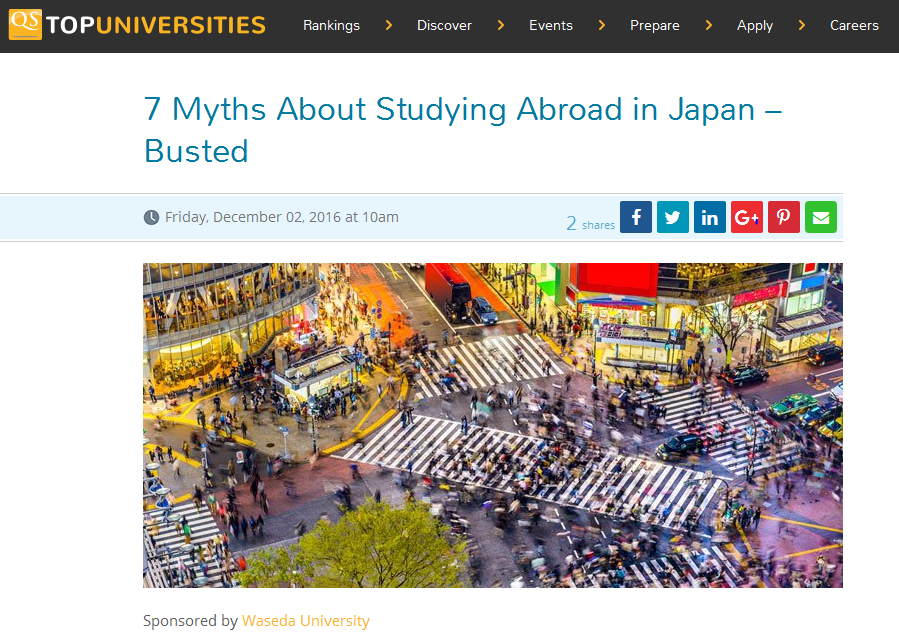For those of you who have never been to Japan before, what kind of stereotypes do you hear about of Japan and Japanese people? Are they images of commuters being crammed into train cars during rush hour? Do you imagine everything to be anime-like? Or, that living in high-tech Japan is so expensive? (Ginza in Tokyo is known worldwide as an upscale shopping district, and there were actually luxury gift mangoes priced at 300,000 yen once.) And yes, there are delicacies in Japan that may not be available elsewhere, like eel and blowfish. While you may find some myths to be true, you will soon discover that most of them aren’t once you arrive here for study abroad.
To clear up those myths, Waseda asked QS Quacquarelli Symonds Ltd., a provider of data analysis and consulting in the field of higher education, to create a list of common myths or misconceptions about studying in Japan (QS). The company is famous for compiling the annual QS World University Rankings, where Waseda recently ranked 26th in the world and 1st in Japan for graduate employability.
Studying abroad is a great opportunity to explore the world, but no one should make a decision based on faulty information. If you are now or have been an international student in Japan, what are some myths that you found to be untrue? Be sure to share them on our Facebook page in the comments section for this article so that people thinking about studying in Japan can get the right impression and be prepared to have an incredible experience!
Related links
- 7 myths about studying abroad in Japan, busted (QS)
- Graduate Employability: Waseda is #1 again in Japan, #26 in World
- Short and long-term programs for international students
- Why Waseda? website
WHY WASEDA?
Created for prospective students who are unfamiliar with Waseda University and Japan as a whole, to see the attractive features of studying at Waseda in Tokyo.









